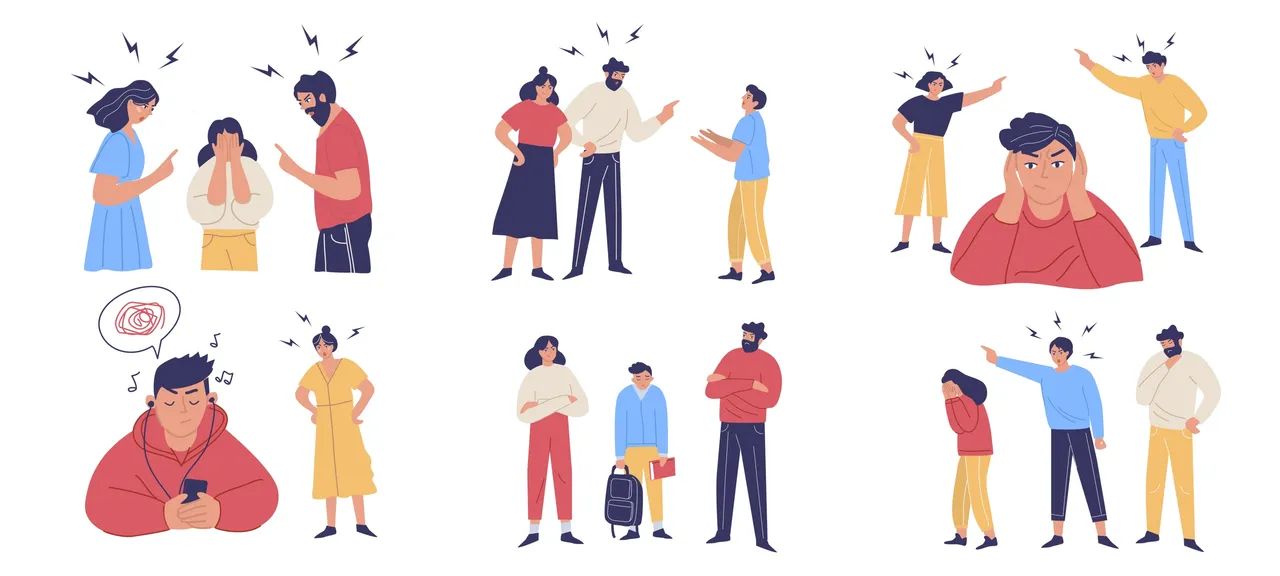Today’s post is written by featured blog guest, Dr. Amy Marschall, Psy.D., Licensed Psychologist. Dr. Marschall and I connected in one of our therapist networking groups, and I had the honor of being interviewed for her blog in January (click here to read). Dr. Marschall specializes in working with children, adolescents, families, and adults, with experiences of trauma. She provides psychological assessments, therapy, and in her spare time, she writes about mental health.
This post is for all the parents and caregivers who are doing the hard and often thankless job of raising children. Parenting is difficult. Children do not come with rulebooks and each child is different. As the world becomes more complex, it seems parenting does too. Parenting over this last year has been especially challenging, as everyone has had to adapt to ever-evolving work and school routines, while still showing up for their kids. If you’re a parent who feels exhausted, you are not alone, and Dr. Marschall is here to share some helpful parenting tips that can easily be applied at home.
Let’s talk about parenting. Parenting is hard. Parenting a child with special behavioral needs can be incredibly challenging. Now, what about parenting a child with special behavioral needs during a pandemic? This, might feel impossible! Thanks to the internet, there are countless resources available, but this can be more overwhelming than helpful, as misinformation abounds. Parenting groups on social media tend to be full of one-upping that makes many people feel inadequate, rather than supported. So, how can we help parents?
The first thing I want every parent to know is this: it’s okay to have a hard time! You get to have hard days, you get to feel frustrated—you get to be human. Extend to yourself the same love and compassion that you extend to your child, because this is really hard and you deserve support, too. Many, many parents that I see in my office will stop themselves at some point to reassure me that they love their child. They will say something like, “I feel like I’m complaining so much, but they are a great kid!”
One thing I know with absolute certainty is that you love your child. If you didn’t, you would not be spending time reading this article about how to be a more effective parent. You could be doing a lot of other things with your day, but you are choosing to put energy into learning how to connect better with your child. As a mental health professional, I know this, and as a parent, you know this.
Kids’ brains are different than adult brains in a lot of ways, especially the frontal lobe (the part of the brain that controls language, decision making, and impulse). Depending on which study you read, our frontal lobes become fully functioning in our mid to late 20s, so your eight-year-old is literally incapable of processing things in the same way as an adult. One example of how children and adults process differently is that kids are much more likely than adults to see things as all-or-nothing. (Adults can think this way too, but kids are more likely to generalize these thought patterns).
What does this mean about your relationship with your child? It means we need to be very mindful of how we (the adults) communicate with kids, how we express our emotions, and how we view discipline and punishment. I can’t tell you how many family sessions I have been in where we are talking about a problem behavior and I will pause and say, “You know your parent still loves you even when you’re in trouble, right?” After this response, I am often met with confusion.
Young children’s brains sometimes cannot grasp the reality that you can be angry with them and continue loving them at the same time. How can your child feel connected to you and trust you when they hold the belief that you stop loving them when they make a mistake?
First, you want to look at how you, the parent, express your emotions. Do you say things you don’t really mean? Do you yell? Do you withdraw affection from your child? Do you hold your feelings in until you explode?
Adults experience emotions, too! I feel happy, sad, angry, nervous, and any other emotion you can think of. I don’t want parents to stop expressing their feelings; I want them to express their feelings in a healthy way that continues to communicate love to their children. It’s okay to feel angry (and even feel angry with your child), but expressing that anger in an unhealthy way can be damaging. You have to be the adult in this relationship by showing your child that we can express big feelings without hurting anyone. This not only teaches kids healthy ways to express emotions but also communicates to them that you still love them even when they are having a hard time.
When we feel angry, it’s tempting to lash out. The urge to punish is strong, and the logic holds up: if I am punished for a behavior, I won’t want to do it again. While this is true, a strictly punitive approach does not teach a better alternative, so next time I have the urge to do the behavior, I know it will get me into trouble but I don’t know what choice I should make instead. Instead of learning better choices, I learn that I am someone who makes bad choices, therefore, I must be bad—this is how children often view themselves as a result.
So, taking what we know about children’s all-or-none thinking, if you take the approach of punishing away bad behavior, your child may not only might feel like you don’t love them when you are angry, but they might start to believe that they are bad or incapable of making good choices. And if they believe they are bad, that they can’t make good choices, or that they are unloved, they start to give up on trying to make good choices.
Like I said, there is a difference between learning what not to do and learning appropriate alternatives. So, we know a punitive approach to discipline teaches your child that they make bad choices, but how do we teach kids to be better?
First, when your child engages in a behavior that bothers you, take a moment to ask yourself exactly why this behavior is a problem. Sometimes we punish kids for behavior that we tolerate in adults. Is this behavior really a problem? If not, you can choose to ignore it.
Second, all behavior communicates something. What is your child telling you with their behavior? Do they have an unmet need? Finding the need and addressing it can prevent a lot of behaviors. For example, if you learn that your child tends to have a meltdown when they get hungry, carrying extra snacks can prevent a lot of “bad” behavior. Some parents express concern that this approach might teach the child that the behavior is acceptable, but they are actually learning how to identify their body’s needs and honor them. They are also learning that their parent cares about them and wants them to succeed.
Third, kids learn more from what they see than what they’re told. Use your own emotions as teaching moments by telling your children in a healthy way how you are feeling and then showing them an appropriate way to handle that emotion. Do you need to take a break before you address the problem so that you are more regulated? You just taught your child it is okay to step away to calm down!
Your child didn’t come with a manual, and it’s okay to figure it out as you go along. You are doing your best, and by focusing on teaching rather than punishing away bad behavior, you can show them how to handle feelings appropriately and grow into well-adjusted children, and eventually, adults. If you make a mistake, tell them! You will be modeling that we all make mistakes, and how we can learn from them.
If you can take a step back and tweak your parenting approach, you can not only teach your child better choices, but you’ll also have a better relationship with them! Assess your expectations, learn how your child is communicating with you, and teach by showing your child what you expect from them. You’ve got this!
To learn more about Dr. Amy Marschall and access free parenting resources, visit her website.
You can also check out her webinars about parenting kids with ADHD and her book, I Don’t Want To Be Bad, which is filled with helpful insights and activities for parents, children, and professionals.
For additional parenting resources, click here.

Dr. Amy Marschall


